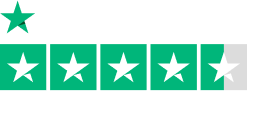Debt consolidation
Why Consolidate Debt?
- Reduce debt faster
- Easier repayment plans
- Lower interest rates
- Get creditors off your back.
Live your life free from money worries
- Initial 10 min chat
- Private & confidential
- Obligation-free
For over 25 years, MyBudget has helped 130,000+ Australians fast track their financial goals by reducing their debt and building savings.
For over 25 years, MyBudget has helped 130,000+ Australians reduce debt and grow savings.
Alyssa & Pete conquered financial stress
“The money that we earn is our money now. And we can put that money that we were paying off credit cards and loans to something more interesting like holidays and things for the family…”
Live your life free from money worries
- Initial 10 min chat
- Private & confidential
- Obligation-free
Your MyBudget journey begins with an initial obligation-free conversation with one of our money experts. They will chat to you about your financial position and gain an understanding of the financial goals you want to achieve.
Debt Consolidation FAQs
What is debt consolidation?
Pros & cons of debt consolidation
Pros
Debt consolidation simplifies your finances by combining multiple debts into a single loan, which often results in lower interest rates and monthly payments, helping to reduce financial stress.
Cons
While debt consolidation can reduce immediate payments, it may extend the loan term, leading to more interest over time. There can also be upfront fees, and it requires disciplined financial management to avoid accumulating new debt.
What debt services and solutions does MyBudget offer?
Does MyBudget provide financial advice?
What if my expenses are higher than my income?
What if I get an unexpected bill?
Can’t find what you’re looking for? More FAQs.
How MyBudget debt consolidation services change lives
By combining multiple debts into a single, manageable repayment plan, MyBudget empowers individuals and families to break free from financial stress and start building a brighter future.
Debt can be overwhelming, and for many, managing multiple loans and credit cards feels like an endless cycle of repayments and mounting interest. MyBudget’s debt consolidation services have proven to be a lifeline for clients looking to regain financial control and achieve lasting stability.
A clear case for debt consolidation
Breakdown of debts:
- Home loan: $400,000 at 4.5% p.a. ($2,200 monthly repayment)
- Credit card: $12,000 at 18.5% p.a. ($185 monthly repayment)
- Personal line of credit: $8,000 at 19.95% p.a. ($135 monthly repayment)
Consolidate debts and save money
Is debt consolidation always this straightforward?
Take Amy’s case, for example. Amy struggled with overspending, which led to significant credit card debt. While a consolidation loan temporarily eased her financial burden, it didn’t address her spending habits. Only through MyBudget’s personalised budgeting services did Amy learn to live within her means and avoid falling back into debt.
- Credit Card 1: $3,000 with an 18% interest rate
- Credit Card 2: $4,000 with a 20% interest rate
- Personal Loan: $7,000 with a 15% interest rate
The benefits of debt consolidation with MyBudget
- Simplified Repayments: Managing one loan instead of multiple debts makes budgeting easier.
- Lower Interest Rates: Consolidating high-interest debts into a loan with a lower rate saves money.
- Reduced Financial Stress: A clear plan helps clients feel in control of their finances.
- Faster Debt Repayment: By minimising interest, clients can pay off their debts sooner.
Why choose MyBudget for debt consolidation?
As one client said, “MyBudget has been the best decision we’ve made—it’s literally changed our lives. The weight’s lifted off your shoulders, you’re not worrying about it anymore. Let them worry about it.”
If you’re ready to break free from the cycle of debt, explore how MyBudget’s debt consolidation services can transform your financial future. With a clear plan and expert support, you can achieve the peace of mind and stability you deserve.
Live your life free from money worries
- Initial 10 min chat
- Private & confidential
- Obligation-free
Understanding debt consolidation to make the right choice
What is debt consolidation?
Debt consolidation involves taking out a new loan to pay off multiple existing debts. Instead of managing several repayments with varying interest rates and due dates, you consolidate them into one loan with a single repayment schedule. This approach provides peace of mind by offering predictable repayments and a clear path to becoming debt-free.
How does debt consolidation work?
Imagine you have the following debts:
- Credit Card 1: $3,000 with an 18% interest rate
- Credit Card 2: $4,000 with a 20% interest rate
- Personal Loan: $7,000 with a 15% interest rate
Using a personal loan repayment calculator, you can estimate your monthly payments and plan your budget accordingly. With a single repayment schedule, you’ll know exactly how much to pay and when, giving you greater control over your cash flow.
Benefits of debt consolidation in general
- Simplified Repayments: Managing one loan instead of several makes your financial obligations easier to track.
- Lower Interest Rates: By securing a loan with a lower interest rate than your current debts, you can save money over time.
- Clear Timeline: one loan, one payment schedule and end date for all your debts.
- Improved Cash Flow: Consolidating your debts helps you better manage your budget, freeing up money for other priorities.
Is it right for you? Why choose debt consolidation?
- You have multiple high-interest debts.
- You’re struggling to keep track of different repayment dates.
- You want to save on interest and pay off your debt faster.
Take control of your financial future
Start your journey today by exploring debt consolidation options that suit your needs and using a repayment calculator to estimate your payments. Take the first step toward a clearer, stress-free financial future.
We offer a range of debt consolidation solutions
- Get a debt strategy tailored just for you
- Whether it’s credit card debt, personal loans, or medical bills, we consolidate them into one payment to help you save money
- Paying off debt & saving money is easier with the support of our caring money experts and our automated money management system
- Our money experts do all the work that will provide you with quick debt relief, including talking with your creditors.


The MyBudget difference
- We start by getting a full understanding of your finances
- We then explore all of your options, including debt consolidation, to determine what is going to be the right solution for you
- You will then receive a FREE customised budget plan that gives you a full picture of how long it will take to get out of debt and improve your financial position
- We take away the stress by talking with your creditors on your behalf and working out more affordable payment terms.
Don’t just take our word for it
We’re often featured in many trusted sources




